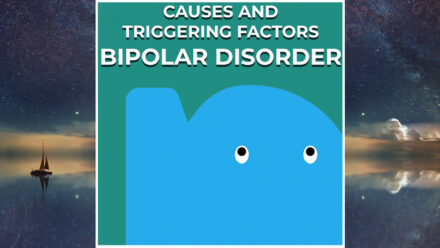
Kees is dealing with bipolar disorder and has a history of psychoses and depression. There was a time when he completely lost himself, but slowly he managed to recover again. With lots of help from others. Because recovering, he has learned, can never be done alone.
“Any recovery story can only start, I think, with grief, acceptance and struggle.
I could not get around these thing, if only because you first need to get a clear picture of what exactly you’re recovering from. Writing a recovery story means trying to find the right words for your suffering. You learn to put words to overwhelming experiences, such as a psychotic episode, or periods of mania and depression. Yet the trick is not to risk losing your balance again and have all the negative thoughts come back. To not get lost too far in all the memories, and make sure that you remain some sense of being a person. Recovery thus also means teaching yourself that the illness is not what you ARE. What you are, is a human being. One that HAS an illness.
For a long time, I thought I WAS the disorder!
After my third admission, I got the diagnosis of bipolar disorder. It was the climax of a long period of depression, mania and several psychoses, in which I lost everything that was dear to me. My kids, my wife, my own company, my house, and lots of friends. But above all: myself. It was the most horrible and dramatic chapter of my life. More so because for long, I believed I would never escape from it and live a normal life again.
As I was slowly starting to realise everything that had happened, I tried to get my life back in order
With the help of medication, a psychiatrist, psychologist and a range of other care workers, I started working on my recovery. To achieve that, I also needed the courage to look back on my life. Recovering is never done alone. You always need help from others, and luckily I was willing to accept their help. People often say: “recovery can only be done by you”, but the truth is more complicated. I only succeeded by clinging to any kind of help that I could find.
I have learned to live with the fact that I will always be vulnerable in certain circumstances
Accepting this vulnerability and taking it into account, can save me from lots of trouble. Before I got ill, I completely ignored my weaknesses. I never had a fixed routine and simply went with the flow that life threw at me. But I was forced to change my structure; become disciplined. To bed in time, wake up early, a healthy diet, exercise, etcetera. Take my medication on time and steer away from too much tension and stress. All these things actually go against my character, being someone who loves excitement and adventure. Letting go of all that was certainly not easy. And I admit, at times I miss the person who I used to be.
It took me quite some years to find myself again, or actually a somewhat different version of myself
But still, life is pretty good in this new form I found. Despite my age, I took up studies again, as well as making music, while trying to appreciate life.
Another important part of my new weekly routine is working as an experience expert. My idea is that clients have a lot to learn from each other during their recovery process, in part by sharing their experiences and recovery stories. Stories to which clients can relate. This recognition is not simply comforting; it actively contributes to more understanding and faster recovery.”
Kees Luijkx works as an experience expert for a mental healthcare institution, and has now been stable for over 20 years.
Read more about Recovery:




Comments: